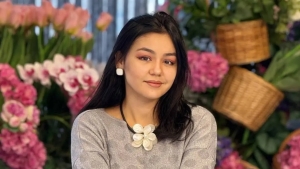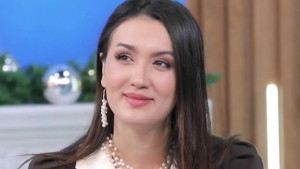Artificial intelligence has identified Solomon's ideal wife

Scientists decided to carry out a unique experiment and attempted to determine which of the women in the palace of Suleiman the Magnificent, the ruler of the Ottoman Empire in the 16th century, could be his ideal wife. This was reported by Upl.uz.
For this purpose, they used artificial intelligence. The artificial intelligence analyzed numerous historical documents – chronicles, letters, and testimonies of contemporaries.
The task was simple: to identify which of the sultan's wives or favorites best matched the strict criteria that were important for that era. The results were unexpected for many, especially for those who know history through the "Great Century" series.
Hurrem Sultan, known for her personal charm and influence, not only did not take first place but also failed to make it into the top three. The artificial intelligence utilized several key criteria considered important for the 16th-century ruler's wife during the analysis process.
These included: aristocratic origin to strengthen political ties; the ability to bear healthy children, especially sons; ensuring order and peace in the palace; political significance that would benefit the empire; and the absence of conflicts or intrigues that could harm the sultan's reputation. The artificial intelligence processed thousands of pages of historical texts, including official records, correspondence, and memoirs of palace staff.
As a result, Hurrem Sultan received only a 61 percent compatibility score. The reason was her failure to meet several important criteria.
First place was taken by Mahidevran Sultan, who received a score of 92 percent. She was the sister queen and one of Suleiman's first favorites.
Her aristocratic background and the birth of her son Mustafa made her an ideal candidate. Additionally, the support of the sister team also strengthened her position.
Her behavior was also considered exemplary in many respects. Second place went to Gülfe'm Hatun with 87 percent.
She was free from political ambitions and served to maintain peace in the palace. Among other women, she was respected and did not participate in intrigues.
However, her inability to bear children was noted as a negative aspect. Third place went to Fyu'lane Hatun with 79 percent.
Although there is little information about her, she bore a son for Suleiman and was far from palace conflicts and intrigues. Historical sources indicate that she quickly faded from the scene, reflecting her lack of inclination towards governance and ambition.
Why did Hurrem Sultan not make it into the top three? The artificial intelligence indicated her unsuitability for political alliances due to her background, her use of aggressive methods to strengthen her influence, and the risk of internal conflicts due to her many sons.
Her personality – her ambitions and fondness for intrigues – also suggested that it was incompatible with stable family relationships. Additionally, the artificial intelligence speculated that Suleiman's choice of Hurrem as his chief wife was based on personal feelings.
It was not a political or strategic decision but rather a choice from the heart. This decision may also express the sultan's desire to challenge traditional palace rules.
In the end, when asked who would be the ideal partner for Suleiman's close friend and advisor Ibrahim Pasha, the artificial intelligence answered "Loneliness." This evokes the complex fate associated with the uncertainties of palace life and Ibrahim's execution.
This outcome reaffirms the complex and changing nature of palace life.







